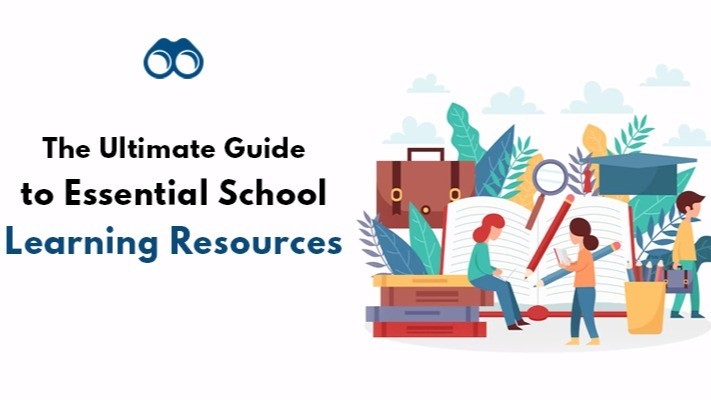
In today’s digital age, educational resources have become more accessible than ever. Whether you’re a student, teacher, parent, or lifelong learner, there are countless tools available to enhance knowledge, develop new skills, and support academic success. From books and learning kits to online courses and interactive apps, educational resources can transform the way we learn.
In this article, we’ll explore different types of educational resources, their benefits, and where to find the best materials to support learning.
Why Are Educational Resources Important?
- Enhances Learning & Retention
Educational resources provide structured materials that help learners grasp and retain information more effectively.
- Supports Different Learning Styles
People learn in different ways—some prefer visual aids, others benefit from hands-on activities. The right resources cater to diverse learning styles.
- Encourages Independent & Lifelong Learning
Access to quality educational materials empowers learners to study at their own pace, encouraging curiosity and self-improvement.
- Bridges Learning Gaps
For students struggling with certain subjects, additional resources like tutoring books, practice exercises, and interactive tools can help reinforce concepts.
- Keeps Education Engaging
Interactive apps, educational games, and multimedia content make learning fun and engaging for children and adults alike.
Types of Educational Resources
There are various types of educational resources available, catering to different subjects, age groups, and learning methods. Here are some of the most effective ones:
- Books & Study Guides
Books remain one of the most valuable educational resources. Some must-have categories include:
- Textbooks & Reference Books – Essential for students and professionals.
- Workbooks & Practice Exercises – Great for skill-building and reinforcement.
- Children’s Educational Books – Interactive and story-based learning for young minds.
- Self-Help & Personal Development Books – Useful for improving life skills and productivity.
- Online Courses & E-Learning Platforms
The rise of online learning has made education more flexible and accessible. Popular platforms include:
- Coursera & Udemy – Offer university-level courses on various topics.
- Khan Academy – Free educational courses for students of all ages.
- Duolingo & Babbel – Language-learning apps with interactive lessons.
- Learning Kits & STEM Toys
For hands-on learners, physical learning tools like science kits, robotics sets, and educational games help develop critical thinking and problem-solving skills.
- Educational Apps & Digital Tools
Technology has revolutionized learning with apps and tools such as:
- Quizlet – Flashcards for memorization and revision.
- Google Scholar – Research tool for academic papers.
- BrainPOP – Fun educational videos and quizzes for kids.
- Audiobooks & Podcasts
For those who prefer audio learning, audiobooks and educational podcasts provide a great way to absorb information on the go. Some popular ones include:
- Audible & LibriVox – Platforms for educational audiobooks.
- TED-Ed – Short, insightful educational talks.
- Worksheets & Printable Resources
Printable worksheets are excellent for home learning and classroom use. These resources include:
- Math & language worksheets
- Science and geography activities
- Coloring and creative learning sheets for kids
Where to Find High-Quality Educational Resources?
- Bookly Stores Marketplace
For a wide selection of books, learning kits, and educational materials, explore Bookly Stores Marketplace, a global online hub for books and learning resources.
- Libraries & Educational Websites
Public libraries and reputable educational sites like BBC Bitesize, National Geographic Kids, and EdX offer free learning materials.
- Teacher & Parent Communities
Online forums and Facebook groups dedicated to education provide valuable recommendations and downloadable resources.
How to Choose the Best Educational Resources
- Consider the Learner’s Needs – Match resources to the learner’s age, skill level, and learning style.
- Look for Credible Sources – Ensure the material comes from reputable educators, publishers, or institutions.
- Check Reviews & Recommendations – Read feedback from other users to gauge the effectiveness of a resource.
- Use a Mix of Formats – Combine books, apps, and hands-on tools for a well-rounded learning experience.
Final Thoughts
Educational resources play a crucial role in enhancing knowledge and skills, whether for academic success, career development, or personal growth. By utilizing the right materials, learners of all ages can make education more effective and enjoyable.
📚 Find top-quality educational books and learning tools on Bookly Stores Marketplace today!






